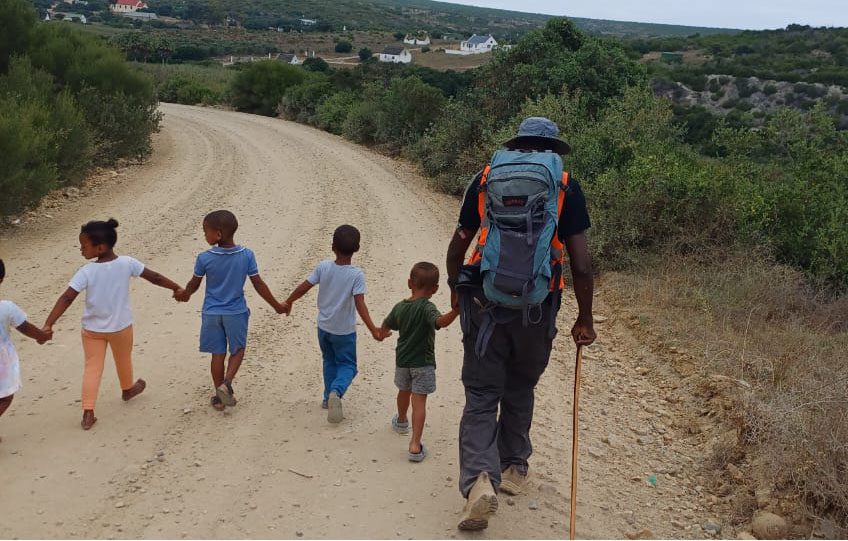Interview from Senior Planet, AARP: Dr. John Francis, 79, (at left) is an environmental educator and activist best known for his commitment to walking and silence as tools for raising awareness about the planet. Through decades of walking, learning, and teaching, Dr. Francis has cultivated a unique perspective on environmentalism, education, and the power of silence.
Dr. Francis, what led you to dedicate yourself to environmental education?
I was born in Philadelphia, but my education started with my family living in Harmony Village, Virginia. We didn’t have electricity or running water, so everything came out of a well. We grew our own food and fished in the bay—chickens, eggs, hogs, and all those kinds of things.
I started learning about the environment once I moved to California and witnessed an oil spill. There was an oil spill in San Francisco Bay, my first time seeing an environmental insult up close that affected a large area. That’s when I really started thinking about the environment and our impact on it.
What inspired your decision to stop riding in cars and commit to walking everywhere?
An oil spill in San Francisco Bay was my first time really, personally, up close and personal, seeing an environmental insult that took over a large area. And that’s when I really started looking at the environment and our impact on it, what it meant.
That’s when I gave up riding in cars and started walking. And I guess it was a few months after that, on my 27th birthday, I decided to take a one-day vow of silence, which lasted for 17 years. And during that silence is when my real education about the environment and the planet, life, and all that’s important really began. (Dr. Francis, at right, in walking mode)
How did people react to your decision to walk everywhere?
I think at first, people thought I was a little strange. But over time, people came to accept it. Walking changed the way I experienced the world and how people interacted with me. I found that people were kinder, maybe because of the silence, the walking, and how that affected me—and how that allowed people to relate to me in a very kind way.”
Did you struggle with the challenges of not using cars, especially while pursuing your education?
It took me two years to walk to the University of Montana for my master’s degree. When I got there, they made me a resident of Montana because it had taken me so long to arrive. They said, ‘We’ve been getting mail for you here, so you’re a resident,’ and they gave me in-state tuition. Because I didn’t have money, the environmental studies program director gave me $100 to register for one credit, which let me matriculate in the school.
When the Coast Guard later offered me a job helping to write oil pollution regulations, they called and said, ‘We’d like you to come to Washington.’ I said, ‘I don’t fly on planes.’ They said, ‘If you take a train, we can reimburse you.’ And I said, ‘I don’t take trains either.’ There was this long pause, and then they asked, ‘Dr. Francis, you don’t ride in cars either, do you?’ I said, ‘No, I don’t.’ And they said, ‘How will you get here?’ I told them I could ride my bicycle. The next day, they called back and said, ‘Our boss said we absolutely have to have you. How long will it take for you to get here?’ I told them about two months, and they said, ‘We’ll be waiting.’
Read the rest of this interview with Dr. Francis at Senior Planet, AARP

